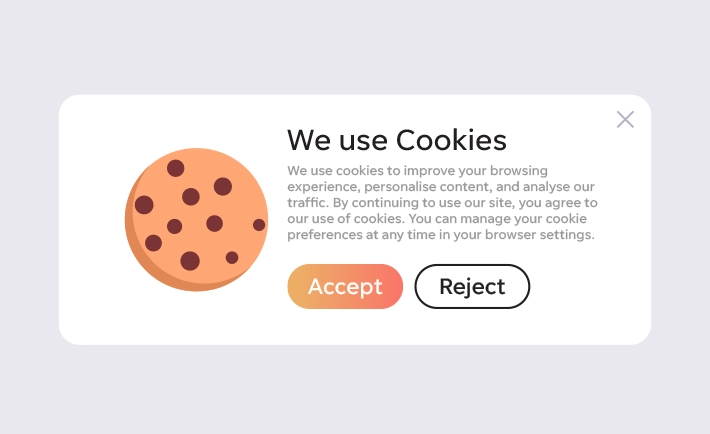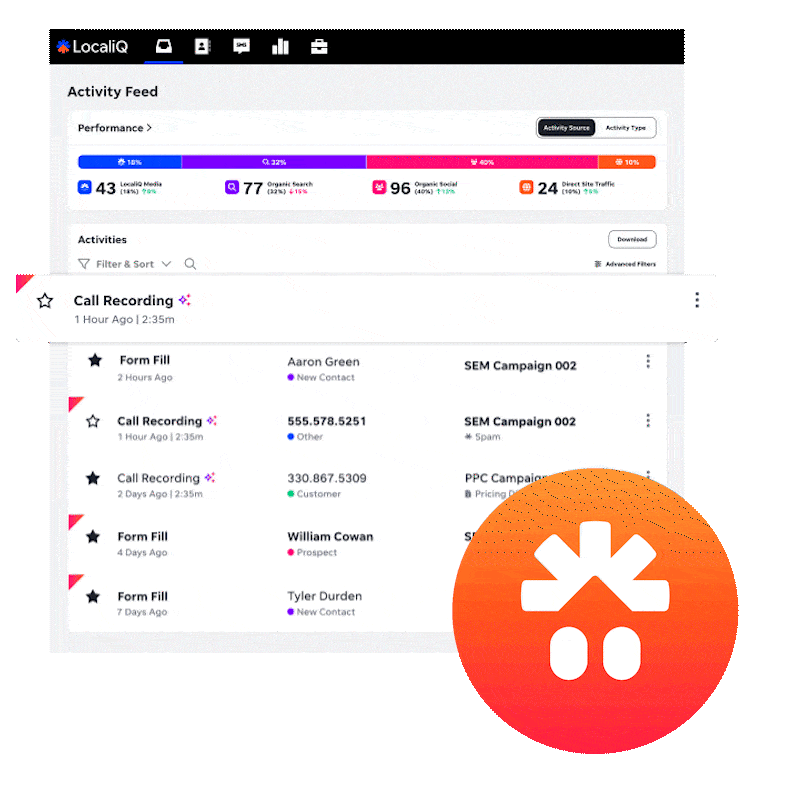Privacy-First SEO & First-Party Data: What You Need to Know
In the modern world of digital marketing, data is gold. But customers are increasingly wary of how their data is collected and used. Privacy regulations are tightening, and users expect businesses to respect their information. That’s why the shift toward privacy-first SEO and first-party data isn’t just a legal necessity — it’s a competitive advantage.
In this blog, we’ll explain what these concepts mean, why they matter and how your business can benefit — without diving into overcomplex technicalities.

What is First-Party Data (and Why It’s Important)
First-party data refers to the information you collect directly from your own customers or website visitors through
- Forms
- Email signups
- Purchase history
- Customer profiles
- Feedback tools
This means, you own that data because you have gathered it yourself and hence, you know its context.
This contrasts with third-party data, which comes from external providers or aggregators (e.g. data brokers). Many regulations are restricting how third-party data can be used, making it less reliable for marketing.
According to the IAB Australia’s 1st Party Data Handbook, first-party data gives businesses greater control, more accuracy, and a stronger foundation for customer relationships. IAB Australia
Using first-party data well allows you to personalise content, segment audiences and build trust — because you’re using information people willingly gave you under understood conditions.

What Does “Privacy-First SEO” Mean?
Privacy-first SEO means designing your website and marketing practices with user privacy as a central principle. Rather than collecting everything you can, you collect only what’s necessary, transparently, and with consent. Key ideas include:
- Minimising what personal data you collect
- Being explicit and clear in your privacy policies
- Honouring user choices (e.g. opt-outs, data deletion requests)
- Relying less on invasive tracking and more on first-party signals
- Using privacy-friendly analytics and tools
When search engines and platforms see that your site respects privacy and user experience, it can boost your credibility — and in some cases, your SEO standing.
Why This Matters — The Australian Context & Trends
1. Consumer concern is high
In Australia, 70% of people say they don’t feel in control of their own data, because companies often hide behind unclear privacy language. privacy.org.au
The Office of the Australian Information Commissioner (OAIC)’s 2023 Community Attitudes to Privacy Survey found that 62% of Australians see the protection of personal information as a major concern. OAIC
In that same survey, 47% of Australians said they were told their data was involved in a breach in the prior year — making data protection a front-of-mind issue for many. OAIC
This level of concern means businesses that mishandle data risk losing trust and that hurts traffic, conversions, and loyalty.
2. Regulations and enforcement are tightening
Australia’s Privacy Act 1988 (with its Australian Privacy Principles, or APPs) regulates how personal data must be handled. Wikipedia
The OAIC has recently begun enforcing stricter compliance, especially involving third-party providers, and has issued determinations over breaches in outsourced services. twobirds.com
As regulators clamp down, businesses that proactively adopt privacy-first practices are less likely to face fines, complaints or reputational damage.

How First-Party Data & Privacy-First SEO Work Together
When combined, these strategies reinforce each other. Here’s how:
-
- Better user experience: You avoid annoying popups or intrusive tracking. You let users control their data.
- Stronger signals: First-party data gives you clearer insight into what your own users do (pages visited, purchases, repeat visits). You can feed these insights into your SEO and content efforts.
- Trust = retention: People prefer dealing with sites they trust. That loyalty can translate into repeat visits, word-of-mouth, and referrals.
- Future-ready: As third-party cookies and cross-site tracking become more restricted (or blocked), first-party data becomes the backbone of your marketing efforts.
What You Can Do: Simple Steps for Small Businesses
You don’t need to be a big enterprise to start. Here are step-by-step actions you can take:
- Audit your data collection: Review all forms, popups, subscriptions and integrations. Are you collecting more data than needed? Remove fields that aren’t critical.
- Be transparent and clear: Show a concise, easy-to-understand privacy policy. Use plain language instead of legal jargon. Let users see what data you collect, how and why you use it.
- Implement consent & control features:Let users opt out of data collection. Give them access to delete or update their information. Honour those choices.
- Rely on first-party analytics tools: Use privacy-friendly analytics that respect user privacy (e.g. cookieless analytics). Focus on aggregated trends rather than deep tracking.
- Use your first-party data to inform content & SEO: Analyse which pages users engage with, where they drop off, what search terms bring them to your site. Use those insights to guide content updates, keyword targeting and site structure.
- Limit third-party scripts: Each third-party tool (ads, chatbots, widgets) may load trackers. Only keep essential ones, and vet them for privacy compliance.
- Communicate your privacy value: Add a short line on your homepage: “We respect your privacy. Data collected is used to improve your experience.” This can help build trust.
- Plan for future changes: Keep up with privacy laws in Australia and globally. Be ready to adapt your data strategies as rules evolve.
Example:
Imagine you run a local café. Rather than asking customers to fill a long form (birthday, full address, preferences), you ask just their name and email for your loyalty program. You clearly tell them how this data will be used (newsletters, offers) and let them unsubscribe easily.
Over time, you see from your own analytics that people open offers sent on Tuesdays more often. You adjust your sending schedule accordingly. Because you respected their data, customers feel more comfortable engaging. You haven’t relied on shady third-party data brokers hence, you own your relationships.

Lastly:
Privacy-first SEO and first-party data are not just buzzwords, they reflect how digital marketing is evolving. With growing consumer awareness and regulatory pressure, businesses that adapt will gain trust, resilience and better marketing outcomes.
In short: collect less, use smarter and treat user data with respect. Do that, and your SEO and marketing will be stronger in the privacy-first future.






